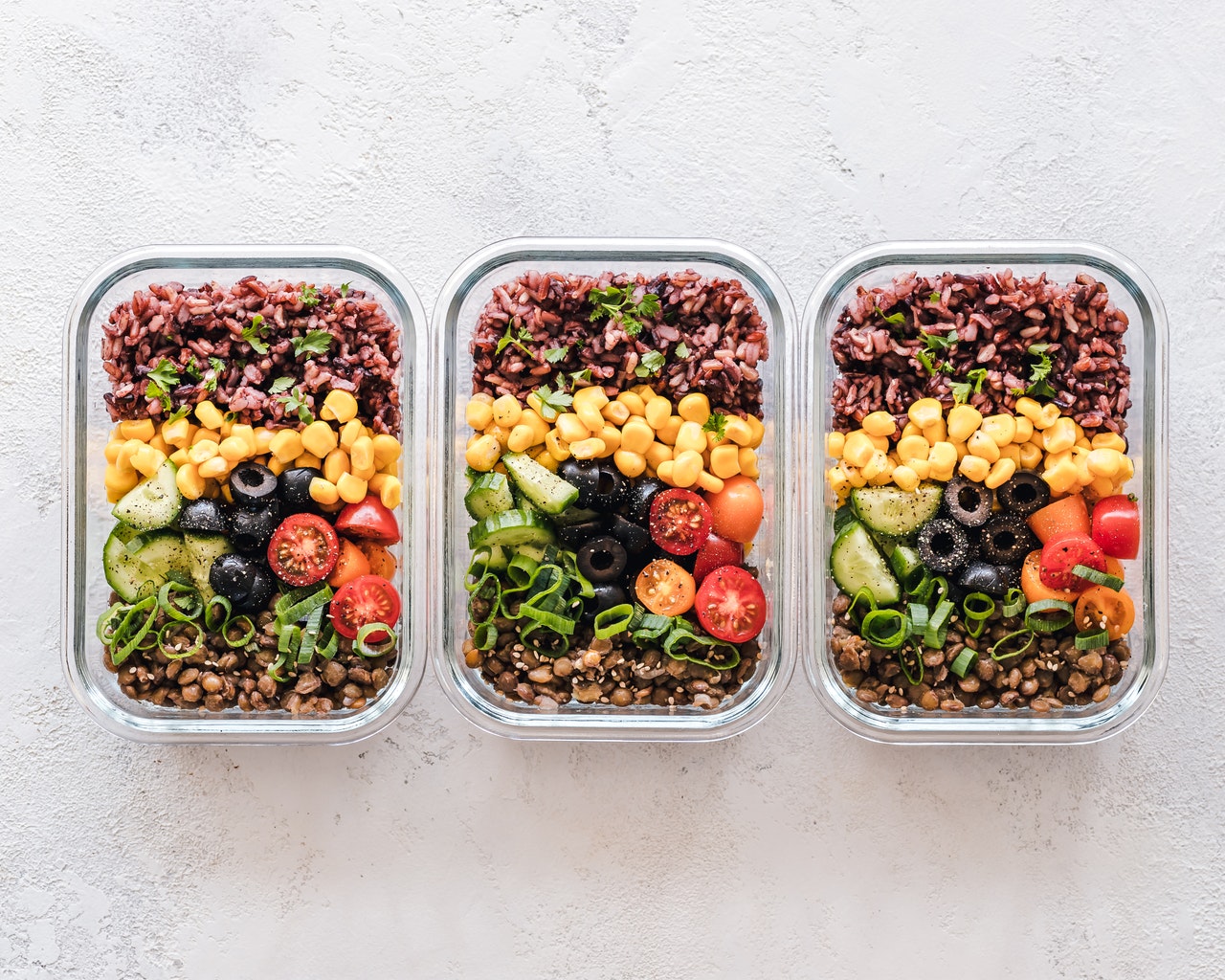When you’re operating with limited time, as many of us are, it might seem daunting to try and cook and prepare your own meals regularly. Keeping track of ingredients, watching expiration dates, taking inventory of what’s in the fridge; are all things we often find ourselves slacking off on. Relying on frozen dinners and take-outs can get old fast, but the alternative is too time-consuming and complex for our busy lives, right?
As it turns out, it doesn’t have to be that way. A handful of adjustments to shopping and cooking, coupled with organized meal storage, can make life exponentially easier. Here are a few tips to getting started on meal prepping (and sticking with it.)
Start by planning two meals a week.
You can alternate these each day, or prep them one at a time twice a week; regardless of your methodology on allocating variety, keeping your grocery list down to ingredients for two different meals while starting out will help ease you into the task at hand without having you resort to eating the same food five days straight (or six or seven days, depending on your needs.) As you get more adjusted to the process, more elaborate prepping schemes can fall into place. Write down every ingredient you don’t have– making sure to double-check your cabinets– and buy them as fresh as possible. For instance, if your preparation day is Sunday, you’ll want to get your ingredients that weekend.
Take into account how perishable your ingredients are.
It can be easy to forget that grocery stores don’t always have perfect products; besides the fact that a particular item just might expire before you’re done needing it, other items can still sit overlooked and already expired on grocery shelves, especially if they’re less common ingredients. Make sure to check the date, as well as recommendations for how long an item can be stored after opening. This is another big reason why buying and prepping no more than a day or two at most before your meal week is so important.
Make sure you’re using adequate storage.
Glass meal containers aren’t just longer-lasting (assuming one is careful, that is) than their plastic counterparts. They also keep your food fresh longer and allow meals to be microwaved in a much more even manner. Sets of glass prep containers can be found at most grocery stores and at many retailers in varying quantities and at varying price points, so there’s almost definitely something for your needs.
Always plan for variety.
Variety is crucial, especially on unique diets where it’s harder to come by such as keto or vegan diets. While covering all the food groups might seem like a no-brainer, you might need to get creative with what items you pack from each category based on their shelf life. And while it goes without saying that all your cooked meals should be refrigerated as soon as possible, keep in mind that certain produce in their raw form may actually last longer outside the fridge than they do within it.


